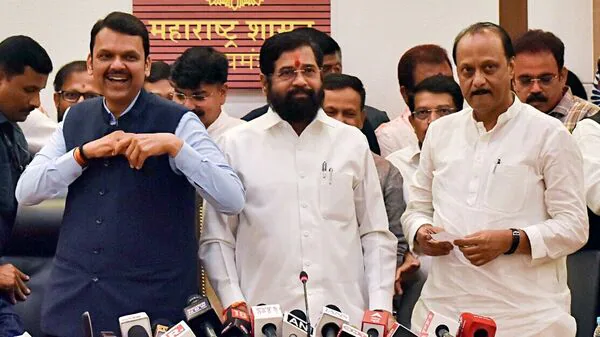The Chief Minister (CM) of Maharashtra holds one of the most significant positions in Indian politics, overseeing governance in the country’s second most populous state and its economic powerhouse. Maharashtra, with its capital Mumbai—the financial hub of India—plays a vital role in shaping the nation’s economy, politics, and culture. The CM’s leadership is instrumental in addressing the state’s multifaceted challenges and leveraging its vast potential.
Role and Responsibilities of the Chief Minister
The Chief Minister is the head of the Maharashtra state government and functions as the link between the state legislature and the administration. Key responsibilities include:
- Policy Formulation and Implementation: The CM steers policy decisions, ensuring they align with the state’s development goals.
- Administrative Leadership: As the executive head, the CM coordinates with various departments and ensures smooth functioning of the bureaucracy.
- Legislative Functions: The CM plays a crucial role in introducing and advocating state legislation in the Vidhan Sabha (Legislative Assembly).
- Crisis Management: From natural disasters to political crises, the CM is at the forefront of managing challenges in the state.
- Representation: The CM represents Maharashtra in national forums and works closely with the central government on inter-state and national issues.
Current CM and Leadership Style
The current Chief Minister of Maharashtra, Eknath Shinde, assumed office on June 30, 2022, after a significant political shift in the state’s government. As a member of the Shiv Sena, Shinde played a pivotal role in orchestrating a split within the party, which led to a coalition government with the Bharatiya Janata Party (BJP).
Eknath Shinde’s leadership style is marked by a focus on grassroots development, drawing from his humble beginnings and long-standing connection with the people. His emphasis on infrastructure projects, welfare schemes, and governance reforms aims to position Maharashtra as a leader in sustainable growth.
Key Challenges for the CM
- Economic Growth: Maharashtra contributes over 14% to India’s GDP, but balancing industrial expansion with rural development remains a pressing challenge.
- Agricultural Distress: Farmers in regions like Vidarbha and Marathwada face recurring issues such as droughts, crop failure, and inadequate access to markets.
- Urban Infrastructure: Rapid urbanization, especially in Mumbai and Pune, has led to strained infrastructure, housing shortages, and environmental concerns.
- Political Stability: Maharashtra has witnessed significant political turbulence, with coalition dynamics often influencing governance.
- Social Welfare: Bridging the socio-economic disparities between urban and rural areas requires targeted interventions in health, education, and employment sectors.
Achievements and Initiatives
Under the leadership of Eknath Shinde, the Maharashtra government has prioritized several development initiatives:
- Infrastructure Development: Accelerating projects like the Mumbai Metro, coastal road networks, and smart city initiatives.
- Agricultural Reforms: Introducing policies to support farmers with subsidies, modern farming techniques, and water conservation projects.
- Investment Promotion: Encouraging domestic and foreign investment in sectors like manufacturing, technology, and renewable energy.
- Healthcare Improvements: Enhancing healthcare infrastructure and services, especially in underserved regions.
Political Landscape and Challenges
Maharashtra’s political landscape is dynamic and complex, with diverse parties like the Shiv Sena, BJP, Nationalist Congress Party (NCP), and Congress vying for influence. Coalition politics often brings challenges in decision-making and policy implementation. Eknath Shinde’s government, backed by the BJP, faces criticism from opposition parties over governance priorities and political maneuvers.
Future Outlook
The CM’s role is pivotal in shaping Maharashtra’s future. With increasing focus on digitization, green energy, and industrial growth, the state has immense potential to set benchmarks for the rest of India. However, ensuring equitable growth and addressing the needs of marginalized communities remain crucial for inclusive development.
Conclusion
The Chief Minister of Maharashtra is not just a political leader but a visionary tasked with balancing tradition and modernization in one of India’s most influential states. Eknath Shinde’s tenure reflects a blend of political resilience and developmental ambitions. As Maharashtra continues to evolve, the CM’s leadership will play a critical role in steering the state toward greater prosperity and social harmony.
